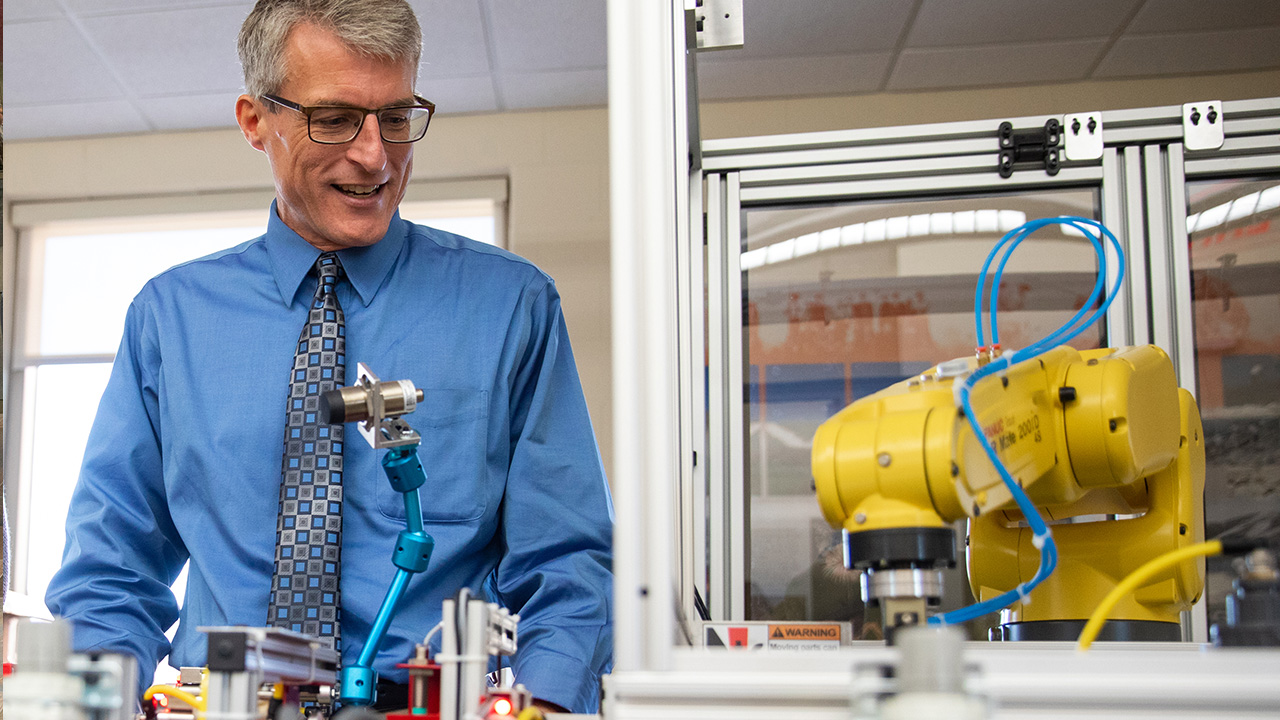
The growing interconnectedness of smart devices – known as the “internet of things” – is changing the way the manufacturing industry operates and the products it produces, and the University of Wisconsin-Platteville is continuing to lead the charge of ensuring that the next generation workforce is prepared for these changes.
At the start of 2019, UW-Platteville jointly hosted an Internet of Things (IoT) Curriculum Workshop to kick off the initiative to develop a series of IoT modules that can enhance existing curricula in engineering and related courses. The work was funded by a grant from the Wisconsin Economic Development Corporation and the University of Wisconsin System.
Since the initial workshop, which included 60 participants from industry and academia, teams of faculty from across the UW System have developed 22 course modules. The modules underwent a detailed peer review from faculty across the UW System. Also, throughout the development process, faculty engaged with industry partners, who provided feedback on the modules.
Receiving the industry feedback was crucial to ensuring UW-Platteville students will be equipped with meaningful skills related to IoT technology, said Dr. Harold Evensen, professor of engineering physics, who has been leading this initiative.
“In the first round, we developed 10 modules and presented them in the summer of 2019,” said Evensen. “The initial feedback from industry partners was good, but one of the biggest things we learned was that they wanted our engineering students to have more business-related skills and knowledge. So, we had business faculty help with the second round of modules, which we finished up over the summer.”
The team reached another milestone this summer when it hosted a virtual workshop, during which module authors presented the final round of curriculum modules to industry panels. Evensen said the feedback was overwhelmingly positive, and while the team is making some final minor adjustments based on that feedback, the 22 modules are now largely ready for wider use and dissemination.
Approximately 200 students, across several courses and UW institutions, have already had exposure to the modules.
“Students have been really appreciative of how current and topical the modules are, and that they are getting really cutting-edge information,” said Evensen. “That will really benefit them. They are getting exposure to these ideas and will be better prepared for the workplace.”
Evensen predicts that IoT technology will continue to play an increasingly significant role in the changing landscape of the manufacturing industry. Introducing students to these IoT concepts will benefit the students, as they enter the workforce, and Wisconsin manufacturers.
“IoT technologies are affecting how we improve manufacturing, but they are also affecting products,” explained Evensen. “When a product is made now, it is not just a chunk of hardware, a lot of times there is a piece of software involved – some sensors or data collection of some sort. That is part of enhancing and redefining the product, so now it is not just a product but a service. To have students be exposed to this area and to be able to start thinking about these things and implementing ideas, will make them better situated once they get out there. The benefit to students bleeds right into the benefit to industries. We want to shorten that learning curve that all students have when they get into industry.”